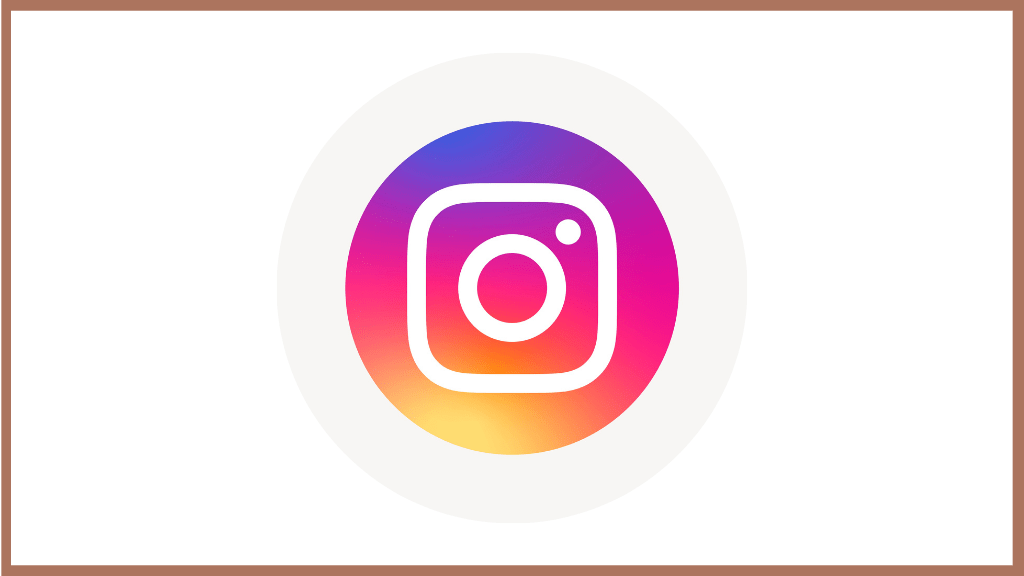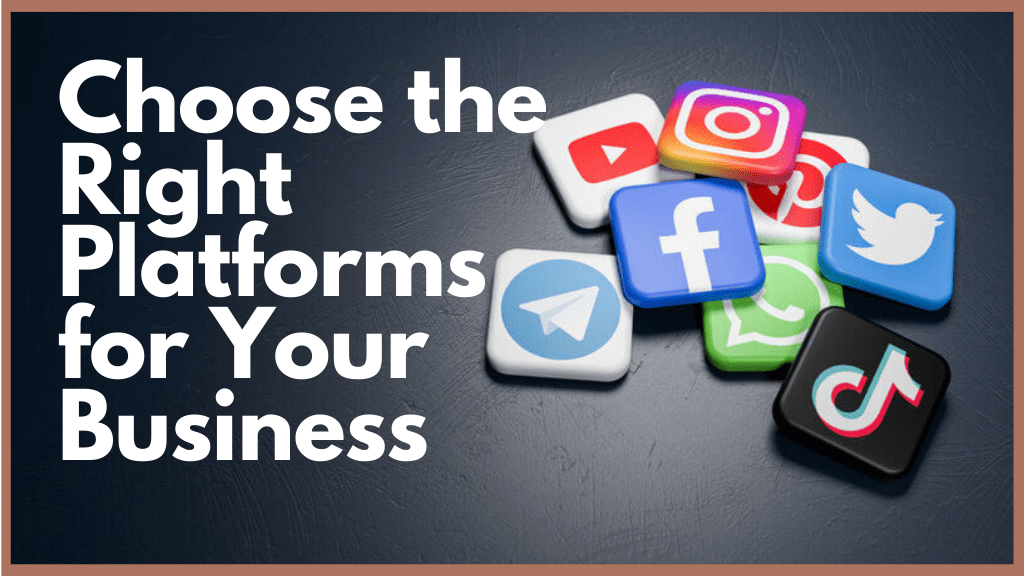The 7 Best Platforms for Social Media Marketing in 2025 for Small Businesses
Table of Contents:
Small business owners now have more ways than ever to connect with their target audience and expand their brand recognition. However, having so many different social media platform options to choose from also makes the job of picking the right ones for small business social media overwhelming.
That's why in this best social media platforms for small business walkthrough, we are going to show you what is good, what is new, and how to adjust your company’s social media marketing strategy to your business goals.
Let’s make your 2025 marketing campaign the most successful one yet!
Why Choosing the Right Social Platform Matters
The right social media platforms can help enhance your marketing efforts, increase your audience engagement, as well as bring in new customers.
No matter if you're posting videos that are only a few seconds long on TikTok, running FB ads or creating a YouTube channel, your main purpose is trying to find the right platform that best allows you to reach the right people in the right way.
What Small Businesses Need in 2025
Before we head into the most popular social media platforms, let's take a look at what characteristics small businesses are looking for in their social media networks:
• Real-time updates and engaging content
• Content creation, scheduling, and customer support tools
• Monthly active users matching your audience demographics
• Some combination of short videos and long-form content
• Community building and business growth potential
1. Facebook: Still King for Local Reach and Ads
Even in 2025, Facebook is still the best platform for local business growth, helping owners link up and engage within their communities.
Why it Works
• Excellent for B2B corporations and lifestyle brands
• Strong Facebook Ads system
• Business active Facebook page features
• Strong tools for customer support and real-time engagement
Best Use Cases
• Advertising new products
• Sharing educational content and blog posts
• Building brand trust through case studies and testimonials
2. Instagram: Visual Content That Sells
Instagram is not only a visual search engine but also a powerhouse to increase brand visibility. It’s the most famous platform and is used among younger audiences, especially Gen Z.
Why it works
• Strong tools for short-form video content via Instagram Reels
• Functionalities for exclusive content and influencer marketing
• Smooth link with Facebook for advertisement targeting
Best Use Cases
• Advertising personal brands
• Running a social media campaign
• Shining the light on the "the scenes content" behind the brand
3. TikTok: Home of Short Videos and Real-Time Trends
Thanks to short-form videos, crazy numbers of audience engagement, and a vibrant community for user-generated content, TikTok remains the leader in trendy content and has become an unavoidable platform for social media users.
Why it Works
• Driven by creativity and real-time updates
• Excellent method for achieving viral status through engaging videos
• Tools that are built-in for social listening and trend spotting.
Best Use Cases
• Creating buzz and excitement for new audiences
• Sharing quick tips, best practices, or how-tos
• Tapping into younger audiences and potential customers
4. YouTube: Long-Form Video Meets Short-Form Powerhouse
YouTube remains a powerhouse in the digital marketing arena, boasting more than 2 billion people using the platform every single month.
Why it Works
• Versatile with both YouTube Shorts and longer YouTube videos
• Excellent for creating social media content like tutorials or product reviews
• Establishes trust, brand awareness and authority via educational content.
Best Use Cases
• Managing a branded YouTube channel
• Sharing behind-the-scenes and long-form video
• Expanding your online presence via video SEO
5. LinkedIn: Professional Networking That Converts
If you are a B2B company, one of your best bets for serious growth on social media LinkedIn.
Why it Works
• Effective for professional networking and, even more, for actual thought leadership
• Great way for social media managers and founders looking to grow and explode
• High-value audience for business marketing compared to other social media platforms.
Best Use Cases
• Sharing industry insights and social networks
• Positioning and branding team as thought leaders
• Running targeted ads to decision-makers
6. Pinterest: Discovery Platform for Visual Brands
The Pinterest platform is ideal for businesses in niches like home, food, fashion, and lifestyle because of its visual content.
Why it Works
• Functions as a visual search engine
• Strong presence among buyers, especially those planning to purchase.
• Perfect for small business social media focused on the e-commerce industry
Best Use Cases
• Showcasing the use cases of your product or service in various scenarios.
• Sharing social media posts that feature eye-catching visuals to grab attention among users.
• Driving traffic to your blog posts and articles
7. Threads, X (formerly Twitter) & Other Niche Platforms
Although X (formerly Twitter) and Threads (created by Meta) are not dominant like other opponents, these two platforms still provide distinct opportunities for community building and real-time interaction.
Best Use Cases
• Sharing real-time updates
• Actively participating in social listening
• Nurturing loyal communities & followers with exclusive content
How To Choose the Right Platforms for Your Business
Not every social networking site is best for every business. Here is how to pick:
1. Know Your Audience
Utilise the database of your "audience demographics" to make an informed decision of where you should be. Ask yourself: Which platform does my target audience usually hang out in, or spend most of their time using?
2. Set Obvious Goals
Is it a matter of brand awareness, driving sales, or lead generation? Your specific goals largely determines your social media marketing strategy in the long run.
3. Balance Time and Resources
Do you have the team to create content for all social media platforms, or would it be better to concentrate your efforts on just one or two?
4. Embrace Diverse Content
Some platforms do better with short, fast paced videos, while others perform well with long-form videos. Be a chameleon, and let each of your social media platforms showcase one of your many talents and strengths.
4+ Types of Content That Converts: Formats That Win in 2025
Here is what’s working for content in today's fast-paced digital landscape:
• Short-form video content: Still the most engaging
• Long-form video: Building deeper trust
• Behind-the-scenes content: Adds authenticity
• Generative AI-assisted visuals: New tools, fresh workflows
• Educational content: Especially how-tos and tutorials
Tips for Better Results
• Schedule posts and publish them at peak activity times for your audience
• Build a clear creation plan for social media before committing to multiple platforms
• Focus on captivating & engaging content rather than polished visuals
• Find the right social media content creator to match your brand tone, goals, and platforms
• Deploy influencer marketing wisely, even using micro-influencers.
• Keep watch over your social media performance using data and insights.
• Test out live video and real-time interactions
Conclusion: Focus on What Moves the Needle
To wrap things up, the best social media platforms for small businesses in 2025 are the spaces where your target audiences hang out, your messages resonate, and your content flourishes.
There’s no one-size-fits-all answer, but when you align your platform with your business goals, messaging, and capacity, you are definitely increasing the likelihood of attracting more viewers, engagement, and meaningful growth for your social media game.
Frequently Asked Questions
-
The leading options are Facebook, Instagram, TikTok, YouTube, and LinkedIn. Each platform depends on the kind of content you produce and your business niche.
-
Instagram Reels & TikTok platforms are best for short-form video content, especially if you want to reach Gen Z, Gen Alpha or younger audiences.
-
Focus on creating educational and informative YouTube videos, behind-the-scenes content, as well as brand storytelling.
-
No. Although it is most powerful in the B2B area, LinkedIn is also a terrific platform for personal and lifestyle brands to build professional visibility.
-
You can use different tools to monitor real-time engagement and performance for your social media site. Below are some key indicators to track:
• Engagement Rate
• Followers Growth
• Click-Through Rate
• Website Traffic
• Sales Metrics
-
Yes. Many small businesses and even large enterprises also utilise Facebook and Instagram to handle their customer support and provide real-time updates or address issues.
-
Not at all. All you need is to select the right platforms that correspond with your target audience, assets, and the kinds of content that you create.
-
You can use social media management tools like Hootsuite, Buffer, Sendible, and Later to schedule your social media posts in advance to ensure consistent posting as well as time-saving.
-
Behind-the-scenes footage, user-generated content, how-tos, and engaging content such as polls and quizzes are great examples of this.
-
Enormously. Being a part of a community is the key to any brand's success on social media in the long run, as it ensures much better audience engagement and brand loyalty, which can lead to driving sales.
Author
Jaymie Dean is the founder of J.Aura and a passionate content creator based in Canberra. With years of hands-on experience in digital storytelling, she helps brands connect with their audience through creative, strategy-driven content. Known for her eye for detail and authentic style, Jaymie brings a fresh and professional approach to content creation in Canberra.











